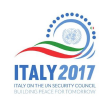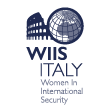In October 2018, the Permanent Delegation of Egypt to the United Nations sponsored a side event organized by FEMWISE, the Nordic Women Mediators Network, the Mediterranean Women Mediators Network, and Women Mediators across the Commonwealth, in cooperation with UN Women.
Background
The 2015 Global Study on the implementation of UN Security Council resolution 1325 (2000), provided ample evidence of the results, women’s meaningful participation and influence bring to the success and sustainability of peace and security initiatives. (1) The Global Study findings have been reaffirmed by the sustaining peace approach, which also highlights the indispensable role, women play in preventive diplomacy and mediation, and as key drivers of sustainability and inclusiveness. Moreover, the role of mediators, and of women mediators, in particular, was also confirmed as one of the key factors determining the quality of women’s participation in peace processes. (2)
Yet, eighteen years after the adoption of the United Nations Security Council groundbreaking resolution 1325 (2000) on women, peace, and security, women continue to be mostly marginalized from formal peace processes. More recent studies continue to find that, in all major peace process between 1990 and 2017, only two percent of mediators were women, only five percent of witnesses and signatories were women, and only eight percent of negotiators were women. (3)
The need to increase the number of women who participate in and can influence peace processes is acknowledged by most international and national actors. Calls are being made for committed leadership that is translated into effective policies, strategies and plans, to prevent ad hoc initiatives more likely to fail. (4) In response, Member States and regional organisations are establishing networks of women mediators. These regional networks, comprised of experienced women involved in different track levels of peace negotiations, constitute a pool of highly- qualified women mediators and mediation practitioners, who can contribute to peace processes and are mostly available for senior appointment by Member States, regional organisations and the UN.
In March 2018 in Oslo, Norway, representatives from these networks, namely the Nordic Women Mediators Network (2015), FemWise-Africa (2017), the Mediterranean Women Mediators Network (2017), and experts from the United Nations, the African Union, the European Union, the Organization for Security and Cooperation in Europe, the Association of Southeast Asian States, country delegates, and civil society and academia representatives, gathered to explore opportunities for cooperation, seek synergies, and discuss the possible establishment of an alliance of regional women mediators’ networks.
The Oslo meeting, hosted by the Norwegian Ministry of Foreign Affairs, concluded with the women mediators’ commitment to continue consolidating their respective networks, while they strengthen their collaboration towards the possible establishment of an alliance of regional women mediators networks. In addition, the participants at the Oslo meeting agreed to convene a side event in New York, during the UN Security Council Open Debate on Women Peace and Security in October 2018. The networks also held an internal meeting to share experiences between their members on mediation issues between 23-25 October 2018.
The panel members discussed their recent experiences with mediation processes, conflict prevention and promoting women’s participation, for instance in the Great Lakes and in Syria. Ambassador Maureen Quinn, who held US leadership positions in Afghanistan, Morocco, and Qatar (Ambassador 2001-2004) moderated the panel.
Programme:
Welcome remarks:
– H.E. Ms. Catherine Samba-Panza, Global Contact Group, Regional Networks of Women
Mediators (FemWise-Africa)
– H.E. Mr. Mohamed Fathi Ahmed Edrees, Permanent Representative of Arab Republic of
Egypt to the United Nations
– H.E. Ms. Fatima Kyari Mohammed, Permanent Observer of the African Union to the
United Nations (TBC)
– H.E. Mr. António Guterres, Secretary-General of the United Nations Organisation (TBC)
Panellists:
– Ambassador Liberata Mulamula, FemWise-Africa
– Ms. Birgitta Holst Alani, Nordic Women Mediators Network
– Ms. Magda Zenon, Mediterranean Women Mediators Network
– Ms. Elizabeth Solomon, Women Mediators across the Commonwealth
– Mr. Nasser Judeh, UN Secretary-General High-Level Advisory Board on Mediation
Open Debate:
Contribution by Member State Representatives, Women Mediators and Experts
Concluding remarks:
– H.E. Dr Phumzile Mlambo-Ngcuka, Under Secretary-General, Executive Director of UN
Women
Moderator:
– Ambassador Maureen Quinn, Adjunct Faculty, New York University’s Center for Global
Affairs, Seton Hall University’s School of Diplomacy and International Relations
Footnotes:
- Preventing Conflict, Transforming Justice, Securing the Peace: A Global Study on the Implementation of United Nations Security Council Resolution 1325, UN-Women, 2015, available at: http://wps.unwomen.org/pdf/en/GlobalStudy_EN_Web.pdf
- Preventing Conflict, Transforming Justice, Securing the Peace, cit.
- Council on Foreign Relations, Women’s Participation in Peace Processes, last updated 5 January 2018, available at:https://www.cfr.org/interactive/womens-participation-in-peace-processes#Introduction cited in Report, Expert Group Meeting on Women’s Meaningful Participation in Negotiating Peace and the Implementation of Peace Agreements, convened by UN Women in preparation for the 2018 Secretary-General’s report on women and peace and security, New York, United States, 16 – 17 May 2018
- Outcome Document, UN Office of the Special Adviser on Africa, UN Department of Political Affairs, ACCORD, High- Level Meeting on Enhancing the effectiveness of preventive diplomacy and mediation in Africa, Durban, South Africa, 12-13 July



